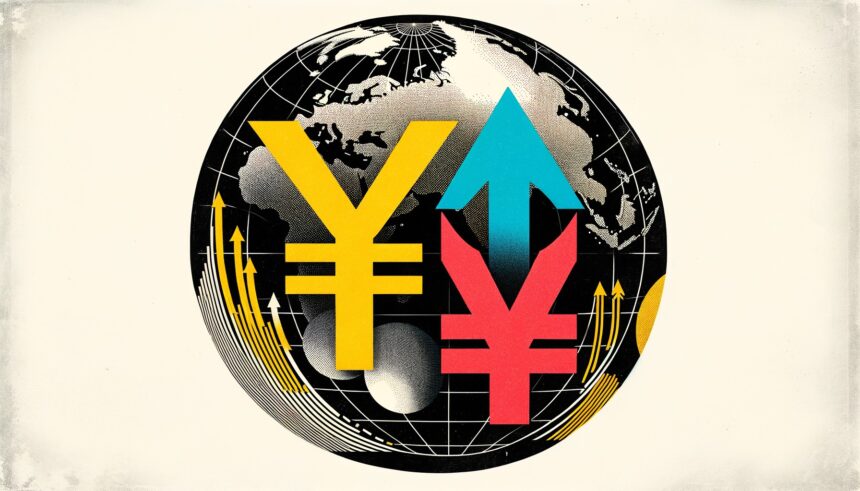What’s going on here?
Japan’s and China’s diverging monetary policies are shaking up Asian currency markets, with the yen strengthening and the yuan weakening – influencing other key regional currencies.
What does this mean?
The Bank of Japan’s tighter monetary stance and recent yen-buying interventions have led to a stronger yen. Meanwhile, the People’s Bank of China’s interest rate cuts and yuan depreciation are part of its strategy to stimulate a struggling economy. This divergence is causing significant shifts in Asian currency dynamics, where traditionally, the region’s currencies were influenced more by movements in the US dollar and the yuan. The yen has gained 8% from its 38-year low against the dollar, while the yuan has weakened due to an unexpected interest rate cut by the PBoC. This shift in the yen and yuan’s trajectories is also affecting other Asian currencies, such as the South Korean won, Indian rupee, and Indonesian rupiah.
Why should I care?
For markets: Playing the divided field.
Asian currencies are at a crucial juncture due to these diverging policies. The yen’s recent strength contrasts with the yuan’s weakness, causing currencies like the won, rupee, and rupiah to oscillate between these influences. While the yen had a significant impact on regional currencies with rising US rates, Goldman Sachs analysts note that broad US dollar and dollar/yuan movements are now more pivotal for Asian FX. Investors should watch how these trends develop as Beijing continues to manage its economic challenges and trade relations with the US.
The bigger picture: A strategic balancing act.
China’s economic struggles and trade tensions with the US are causing it to adjust its currency strategies. Beijing might prefer a weaker yuan compared to the yen to counteract the effects of deteriorating trade relations with the US. The yen has depreciated by about 30% against the yuan since the pandemic’s onset, making Japanese goods significantly more competitive internationally compared to Chinese goods. This strategic currency management could help China navigate its economic and trade challenges while influencing broader regional economic dynamics.





















